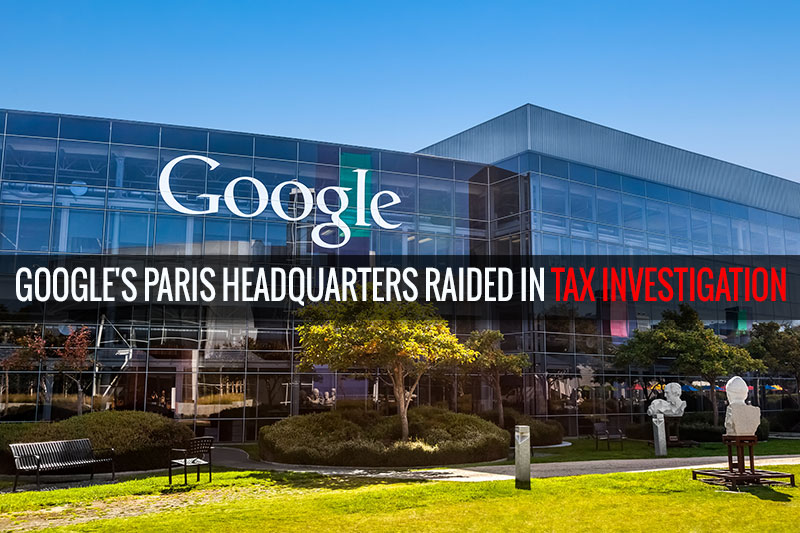
The investigators in France have recently raided Google’s headquarters in Paris for some serious accusations of organised money laundering and aggravated financial fraud. After a long enquiry into Google’s taxation issues, the magistrates have disclosed that this tech giant is evading taxes as it hasn’t been able to give away the complete details of its activities in France. Moreover, prosecutors stated that they need to determine whether the Irish company through which Google channels a major part of the European revenues actually controls a “permanent establishment” in France.
On the other hand, Google continues to state that its offices in Paris, London and other Eurpoean cities are running as satellites of its Dublin Headquarters which offer back office services rather than operating as a fully fledged business. As per its claims, most of the non-US revenue comes from advertising activities through Dublin which carries 12.5% corporation tax and this rate is really low when compared to the European standards. As a result, this structure lets the company ignore both US and European taxes.
All this started in 2011 when a series of raids was conducted by French authorities and inquiry was made into Google’s transfer pricing. Later in 2014, the company stated its French operation revenues to be around €216m and paid €5m as tax but the advertising researchers had estimated the actual revenues at €1.7bn. Despite all this, Google is still insisting that it complies with all kinds of taxation issues in every country.
Well, Google is not the only multinational company which is facing taxation trouble in the country. A similar notice for €300m of unpaid tax was also sent to the McDonald’s office. France is aggressively carrying out the tax optimisation techniques which helped in yielding €12.2bn last year. This amount was one-fifth of that of the preceding year.
Source: BBC.com